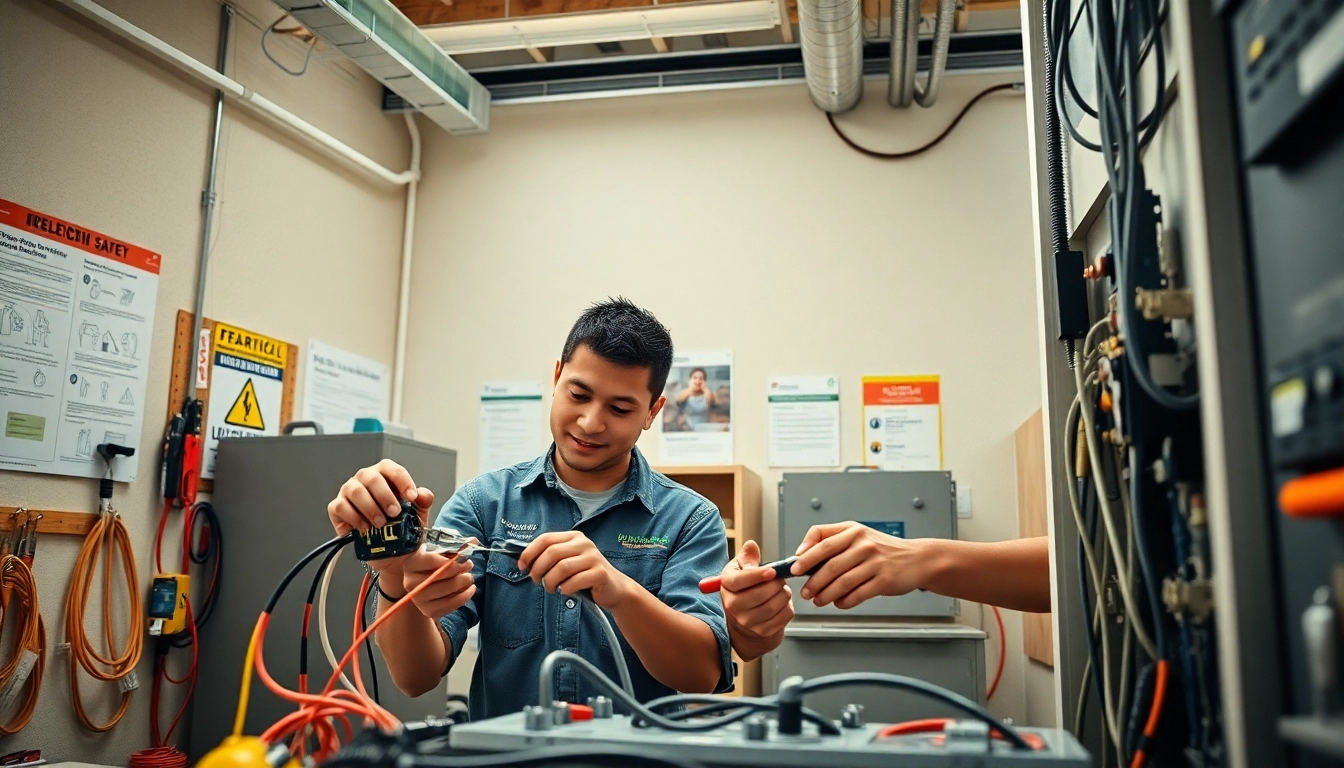
Kickstart Your Career with an Electrician Apprenticeship in Hawaii
Understanding the Role of Electricians
What Electricians Do: Key Responsibilities
Electricians are skilled tradespeople who specialize in the installation, maintenance, and repair of electrical systems. Their work is vital to ensuring the safety and efficiency of electrical infrastructure in residential, commercial, and industrial settings. Key responsibilities in this profession include:
- Installation of Electrical Systems: Electricians install wiring, circuit breakers, outlets, and lighting fixtures according to building codes and safety standards.
- Maintenance and Repairs: They troubleshoot electrical malfunctions and perform repairs to ensure systems are functioning properly.
- Reading Blueprints: Electricians interpret technical drawings and blueprints to understand the design and layout of electrical systems.
- Ensuring Safety: Compliance with safety regulations and local codes is crucial; electricians must be knowledgeable about safe work practices.
- Upgrading Systems: They often upgrade existing electrical systems to handle increased loads or improve energy efficiency.
Types of Electricians: Specializations Explained
Electricians can specialize in various fields based on their skills, interests, and job requirements. The main types include:
- Residential Electricians: Focus on electrical systems in homes, including wiring, lighting, and security systems.
- Commercial Electricians: Work in commercial settings, handling larger-scale projects such as office buildings and retail spaces.
- Industrial Electricians: Specialize in complex electrical systems in factories, plants, and other industrial locations.
- Maintenance Electricians: Primarily work on maintaining and repairing existing electrical systems across various sectors.
- Low Voltage Electricians: Focus on systems that operate on lower voltages, such as telecommunications and security systems.
The Importance of Electrician Training Programs
Becoming a skilled electrician inherently requires specialized training. Electrician training programs are crucial as they not only provide hands-on experience but also theoretical knowledge about electrical systems. These programs cover safety practices, electrical theory, and building codes, ensuring that future electricians are well-prepared for the challenges of the job.
Electrician Apprenticeship Programs Overview
What is an Electrician Apprenticeship in Hawaii?
An electrician apprenticeship in Hawaii is a structured training program that combines on-the-job training with classroom instruction. This model allows aspiring electricians to learn practical skills while being supervised by experienced professionals. Typically lasting 4-5 years, apprenticeships are a pathway to becoming licensed electricians.
Program Structure: Combining Work and Classroom Learning
Electrician apprenticeship programs in Hawaii are designed to equip trainees with essential skills through a combination of work experience and academic learning. This dual approach often includes:
- Hands-On Training: Apprentices work directly under licensed electricians, gaining real-world experience.
- Classroom Instruction: Participants attend classes to learn about electrical theory, safety procedures, and relevant local codes.
- Mentorship: Apprenticeship programs often provide mentoring relationships with seasoned electricians, enhancing learning and professional development.
Finding Accredited Apprenticeship Programs in Hawaii
Prospective apprentices can find accredited electrician apprenticeship programs in Hawaii through a variety of resources. State agencies, trade unions, and local community colleges often provide listings of approved training programs. Additionally, organizations like the electrician apprenticeship hawaii offer guidance on reputable programs, ensuring a thorough training experience.
Requirements to Enter an Electrician Apprenticeship
Educational Background and Age Limitations
To enroll in an electrician apprenticeship program in Hawaii, candidates must typically meet specific educational and age requirements. Most programs require:
- A high school diploma or GED as a minimum educational qualification.
- Applicants must generally be at least 18 years old to ensure they are legally able to work.
Skills and Attributes for Success in Electrician Roles
Being a successful electrician requires a particular skill set and attributes. Essential skills include:
- Problem-Solving Skills: Electricians must be able to assess problems and come up with practical solutions quickly.
- Attention to Detail: Precision is critical in electrical work to meet safety and quality standards.
- Physical Stamina: The job can often be physically demanding, requiring strength and endurance.
- Technical Skills: Familiarity with tools, codes, and regulations is essential for safety and efficiency.
Licensing and Certification Requirements
Upon completing an apprenticeship, individuals must obtain licensure to practice as electricians professionally. In Hawaii, this typically involves passing a comprehensive examination that covers various aspects of electrical theory, practice, and code.
Benefits of Completing an Electrician Apprenticeship
Hands-On Experience and Real-World Skills
Hands-on training represents one of the most significant benefits of completing an electrician apprenticeship. Trainees develop practical skills that cannot be learned in a classroom alone, ensuring they are job-ready upon graduation.
Career Advancement Opportunities Post-Apprenticeship
The completion of an apprenticeship opens up numerous career advancement opportunities within the electrical field. Graduates are often eligible for supervisory positions or specialized roles that can lead to increased responsibilities and higher salaries.
Financial Incentives and Job Security in the Electrician Field
Electricians often enjoy competitive salaries and excellent job security. As the demand for skilled tradespeople continues to grow, those who complete their apprenticeship are well-positioned to take advantage of financial incentives and growth opportunities, contributing to a stable and rewarding career path.
Future Trends and Opportunities for Electricians in Hawaii
Emerging Technologies: Innovations in Electrician Work
Technological advancements are continuously reshaping the role of electricians. New tools, techniques, and software solutions increase efficiency and improve safety on the job. Electricians must stay current with these innovations to remain competitive in the industry.
The Impact of Renewable Energy on Electrician Jobs
The shift towards renewable energy sources like solar and wind power is generating new job opportunities for electricians. Training in these specialized areas will increasingly become essential, creating a greater need for workers who understand these emerging technologies.
Preparing for Changes in the Electrician Industry Landscape
As the electrical industry evolves, those pursuing careers within this field must adapt to changes. Continuous education and professional development will be crucial for staying ahead in a market that increasingly embraces sustainability and efficiency.
